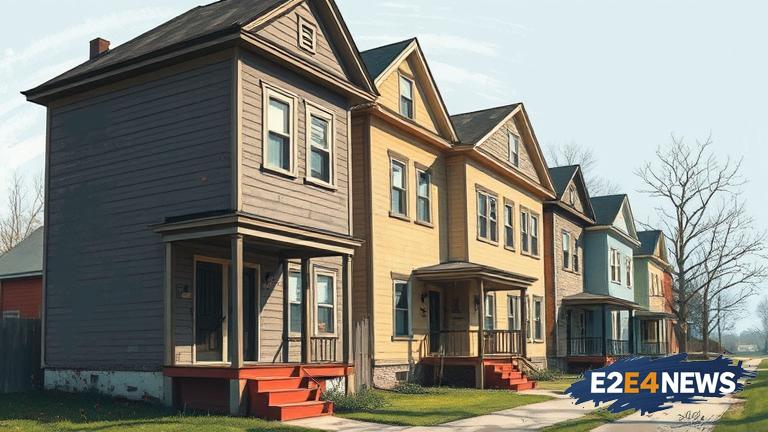A recent investigation by ProPublica has shed light on the practices of public housing authorities in Maine, where tenants are being evicted through repayment agreements. These agreements, which are often used as an alternative to traditional eviction proceedings, have raised concerns among tenant advocates and lawmakers. The use of repayment agreements has been criticized for being overly broad and punitive, with some tenants being forced to pay back large sums of money or face eviction. In some cases, tenants have been evicted from their homes without being given the opportunity to contest the repayment agreement. The investigation found that public housing authorities in Maine have been using repayment agreements to evict tenants for a range of reasons, including non-payment of rent, damage to property, and other lease violations. However, some tenants have reported being evicted without being given clear notice or an opportunity to appeal. The use of repayment agreements has also been criticized for disproportionately affecting low-income and vulnerable tenants, who may not have the resources to navigate the complex and often confusing process. Lawmakers in Maine have begun to take notice of the issue, with some calling for greater oversight and regulation of public housing authorities. The Maine State Housing Authority has defended its use of repayment agreements, stating that they are necessary to ensure that tenants are held accountable for their actions. However, tenant advocates argue that the use of repayment agreements is often arbitrary and unfair, and that tenants are not being given the protections and due process that they are entitled to. The investigation has also raised questions about the role of private management companies in public housing, with some critics arguing that these companies are prioritizing profits over people. As the debate over repayment agreements continues, tenants and advocates are calling for greater transparency and accountability in the public housing system. The use of repayment agreements is not unique to Maine, with public housing authorities across the country using similar tactics to evict tenants. However, the investigation has highlighted the need for greater oversight and regulation of public housing authorities, particularly in states like Maine where the use of repayment agreements is widespread. The issue has also sparked a broader conversation about the state of public housing in the United States, with many arguing that the system is in need of reform. Some have called for increased funding for public housing, as well as greater protections for tenants. Others have argued that the use of repayment agreements is a symptom of a larger problem, namely the lack of affordable housing options in the United States. As the conversation continues, it is clear that the use of repayment agreements in Maine public housing is a complex and multifaceted issue, one that requires careful consideration and attention from lawmakers and advocates. The investigation has provided a critical look at the practices of public housing authorities in Maine, and has highlighted the need for greater accountability and transparency in the system. Ultimately, the goal should be to ensure that tenants are treated fairly and with dignity, and that they are given the protections and due process that they are entitled to. The use of repayment agreements is just one part of a larger conversation about the state of public housing in the United States, and it is clear that there is much work to be done to address the complex issues at play. The investigation has provided a critical step forward in this conversation, and it is hoped that it will spark further discussion and action in the days and weeks to come. The issue of repayment agreements in Maine public housing is one that affects not just tenants, but also the broader community. It is an issue that highlights the need for greater investment in affordable housing, as well as greater protections for vulnerable populations. As lawmakers and advocates continue to grapple with this issue, it is clear that there is much work to be done to ensure that tenants are treated fairly and with dignity. The use of repayment agreements is just one part of a larger conversation about the state of public housing in the United States, and it is hoped that it will spark further discussion and action in the days and weeks to come.
